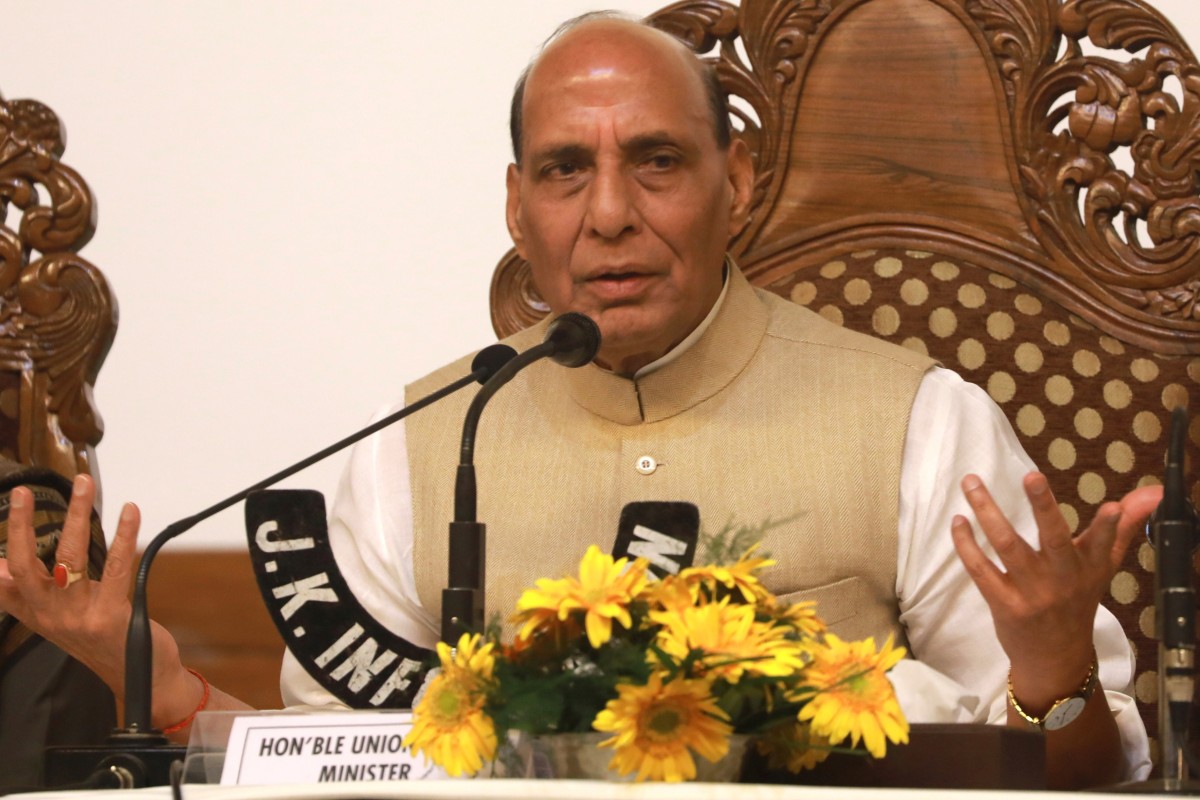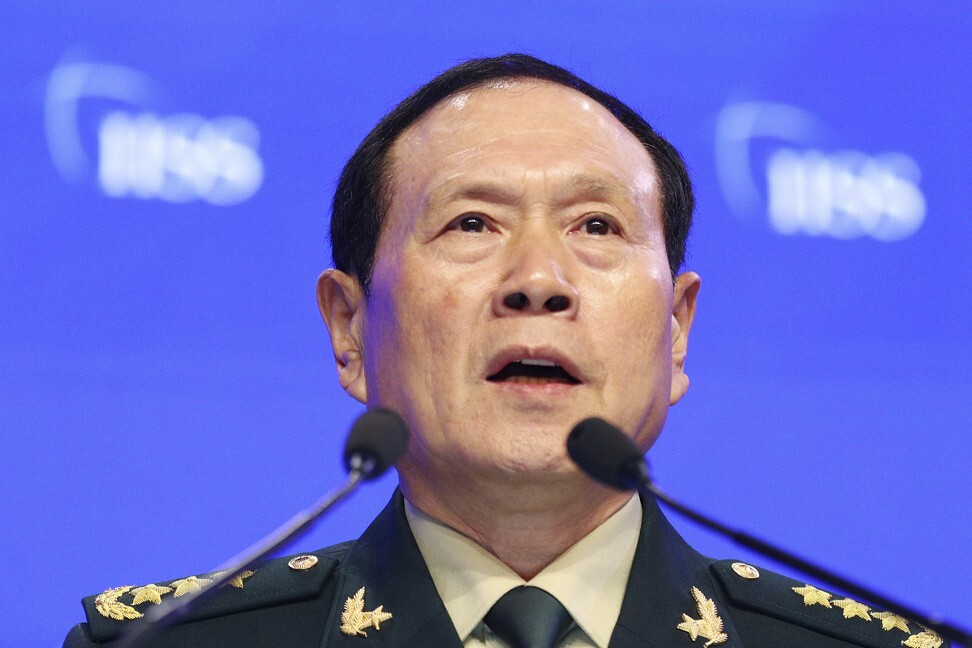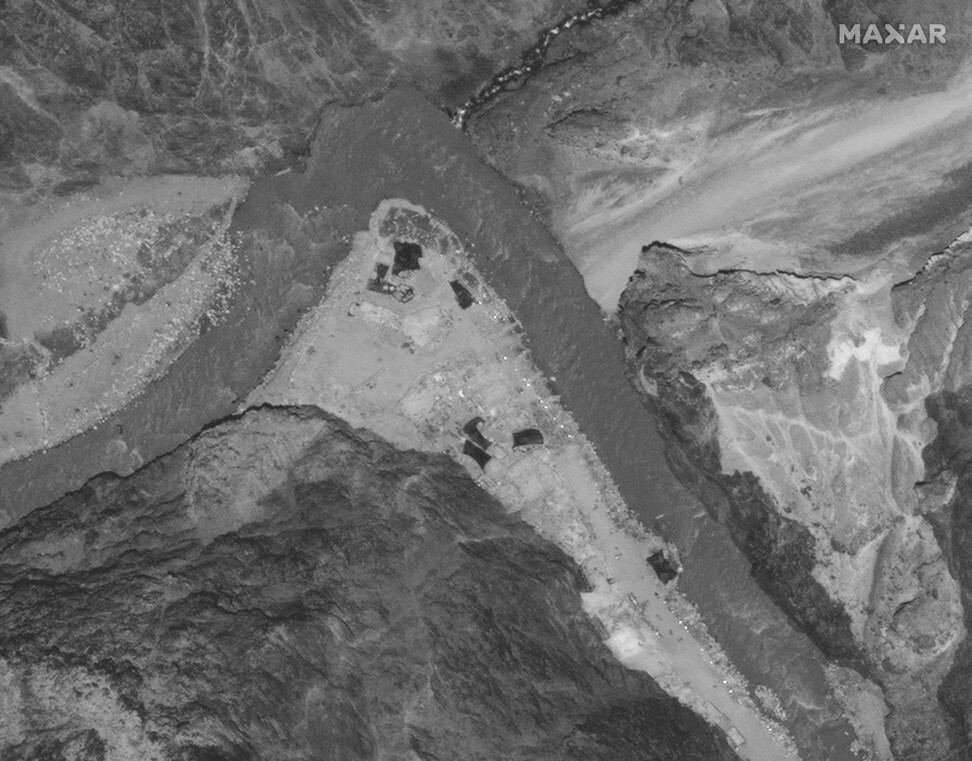
Ministers due to attend Shanghai Cooperation Organisation meeting as India and China spar over disputed border hotspotAnalyst says participation in Moscow meeting is a positive sign amid flared tensions
Beijing, Sep 2

Defence ministers from China and India are expected to arrive in Russia on Wednesday as the two countries face each other in a fresh stand-off over their disputed border lands.
China’s Wei Fenghe and his Indian counterpart, Rajnath Singh, will attend an annual meeting of defence ministers under the Shanghai Cooperation Organisation (SCO).
Singh and Wei will attend the meetings hosted by Russian Defence Minister Sergei Shoigu, although there are apparently no plans for talks between India and China on the sidelines, India’s Economic Times reported on Wednesday, citing Indian government sources.
Singh posted on Twitter on Wednesday morning that he was headed to Moscow for a meeting of SCO defence ministers. Singh said he would meet Shoigu “to discuss bilateral cooperation and issues of mutual interest” but did not mention China or the border tensions.

Chinese Defence Minister Wei Fenghe. Photo: APThe meetings come as India and China have engaged in new rounds of diplomatic and military sparring over the disputed Himalayan border hotspot of Pangong Tso since the weekend, with tensions at their highest since deadly clashes at the Galwan Valley border killed 20 Indian soldiers in mid-June.
India said that it had “thwarted” Chinese “provocative military movements” on Saturday night on the southern bank of the high mountain lake, while China accused India of “illegally crossing” into Chinese-claimed territory.
Chinese Foreign Minister Wang Yi and his Indian counterpart have both pushed for calm and dialogue after the first reports of the stand-off at Pangong Tso.
But India’s Ministry of External Affairs said China took fresh “provocative actions” on the southern bank of Pangong Tso on Monday. India was “able to prevent these attempts to unilaterally alter the status quo”, according to a statement released on Tuesday night.
Indian media reports said one Indian soldier of Tibetan origin died on Saturday, in Ladakh and another was injured when a landmine went off during a reconnaissance mission.
Chinese foreign ministry spokeswoman Hua Chunying said on Wednesday that no Indian troops had died along the countries’ shared border but she said an Indian soldier had died in a car accident, citing The Guardian and Indian media reports.
Chinese and Indian military leaders held talks on de-escalating tensions on Monday in Chushul, the Indian statement said. Chushul is a village in Ladakh district.
Local military commanders from both countries started their emergency meetings on Wednesday morning for the third consecutive day, with little progress reported so far.
Sun Shihai, director of the China Centre for South Asian Studies at Sichuan University, said that although it remained unclear whether the two defence ministers would meet in person in Moscow, their participation in the SCO gathering itself was a positive sign amid flared tensions.

A satellite image of the Galwan Valley along the disputed border between India and China. Photo: Maxar Technologies via AP
He said that maintaining regional peace and stability was a top priority for the SCO, a regional bloc led by China and Russia and consisting of eight nations.
“The defence chiefs from both countries are expected to touch on the thorny border dispute and explain their stance clearly,” Sun said.
Madhav Nalapat, professor of geopolitics at Manipal University, said he did not expect there to be talks between China and India in Moscow, or mediation efforts by Russia.
“India, unlike China, is a democracy, and diplomatic talks will take primacy over military ones from the Indian perspective,” he said.
“India is a global power, just like China. Only when Beijing understands this can there be a correction to the downward trajectory of relations.
Sun said the SCO foreign ministers’ meeting scheduled for September 10 in Moscow, which Wang Yi and India’s external affairs minister, Subrahmanyam Jaishankar, were expected to attend, would be another opportunity for both sides to climb down from the brink of armed confrontation.
“As I’ve seen in the past, it’d be extremely difficult for both China and India to make concessions and break deadlocked talks over our contested border. But we must continue with our dialogue,” Sun said.
Like China, India, as an aspiring regional power, cannot afford to look weak because of coronavirus and economic woes and nationalist sentiments at home as well as the complex international situation.
“Although tensions remain dangerously high and both sides have stepped up their rhetoric, I don’t think it will lead to armed conflicts because no country wants war,” Sun
wmode=transparent&jqoemcache=FWynhIndia last week pulled out of a multilateral military drill hosted by Moscow starting from September 15, citing the Covid-19 pandemic. China and Pakistan will take part in the multilateral military exercises.Indian media also revealed on Monday that New Delhi deployed a warship to the South China Sea soon after the deadly border clash on June 15.
Analysts said both steps were related to India’s flaring border tensions with China and Washington’s efforts to lure New Delhi into an anti-China coalition in the Indo-Pacific.During a trilateral videoconference meeting between the foreign ministers of India, China and Russia a week after the June clashes, Russian Foreign Minister Sergey Lavrov said his country would not mediate the dispute between China and India.
Days after the video call, both Wei and Singh visited Moscow to attend a military parade, although reports said the two did not meet.Russian President Vladimir Putin may visit China this month but no date has been set, the country’s foreign ministry announced on Friday.
Source– south china morning post


Comment